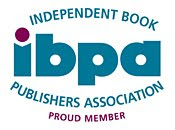This week’s Torah portion, Chukkat, (Num. 19:1-22:1) tells
of the death of Moses’ sister Miriam.
Immediately afterwards, we are told that there was no water for the
Israelites, and that they rebelled against Moses and Aaron. God tells Moses to take his rod in hand and
speak to a rock and order it to produce water.
Instead of speaking to it, Moses strikes the rock with his rod. Water pours out of the rock anyway, but God
says to Moses and Aaron, “Because you did not trust Me enough to affirm My sanctity
in the sight of the Israelite people, therefore you shall not lead this
congregation into the land that I have given them.” (Num. 20:12)
Commentators on the Torah have struggled to explain why this
seemingly minor infraction should cause such a harsh punishment. Some suggest that Moses’ statement to the
people implies that it is he and Aaron, and not God, who will bring about the
miracle. Some say that Moses loses his
temper and becomes visibly impatient with the people, citing the Talmudic
statement, “When a prophet loses his temper, his gift of prophecy abandons him”
(B.T. Pesahim 66b). But I find most
persuasive Rabbi Harold Kushner’s remarks in Etz Hayim Torah and Commentary:
“One might conclude that God’s decree of
death in the wilderness for Moses and Aaron was not so much a punishment as a recognition
that their time of leadership was over…Moses and Aaron were not sinners; they
were the right leaders for the Exodus, for Sinai, for establishing the
tabernacle. They were not the right people to lead a younger generation into
battle.”
It is hard to give up doing what we love when we become too
old or too infirm to continue it. Even a person as great as Moses had a hard
time handing over the reins. Yet, a new
generation of leadership arises, and carries the tradition on to this day. As hard as it may be, we must learn to trust
in the future.


